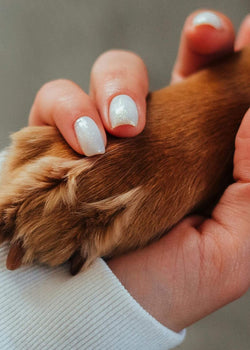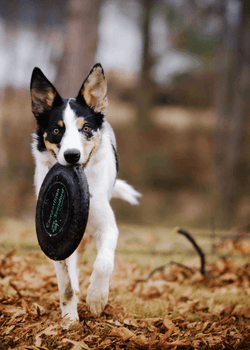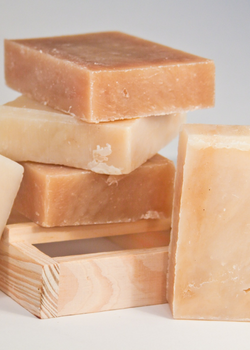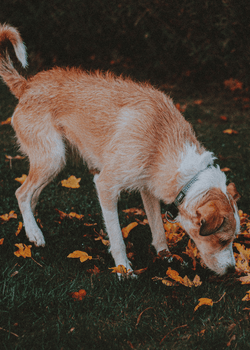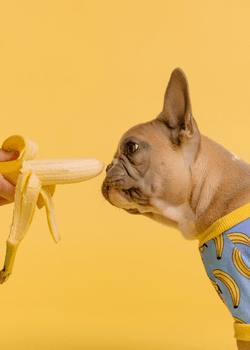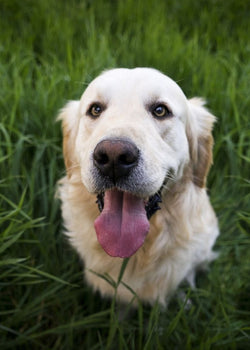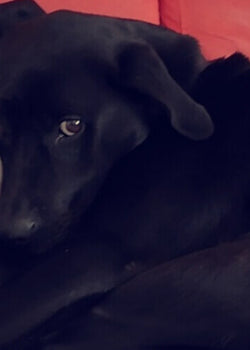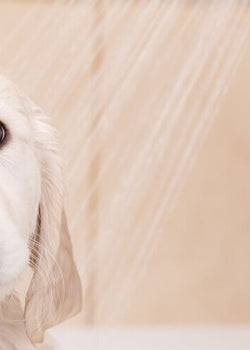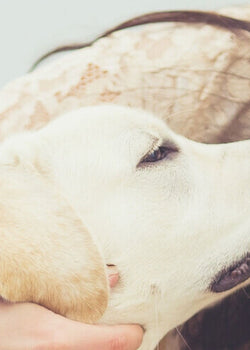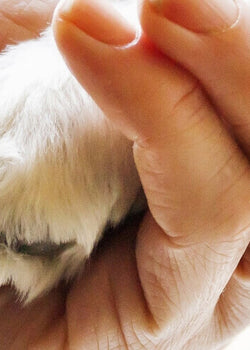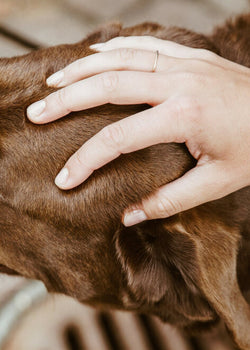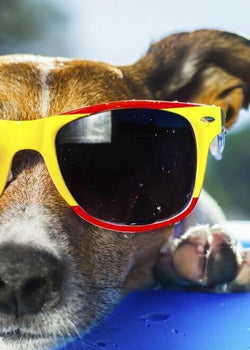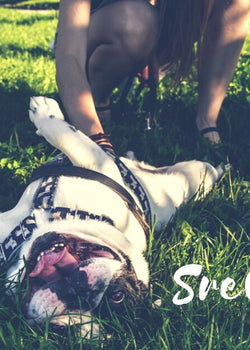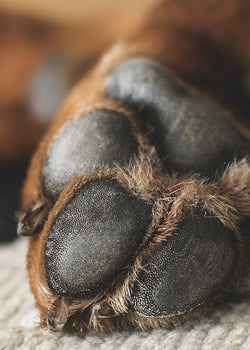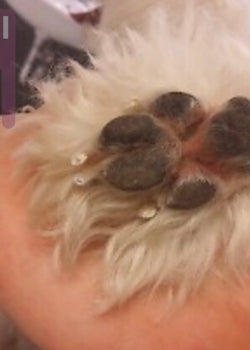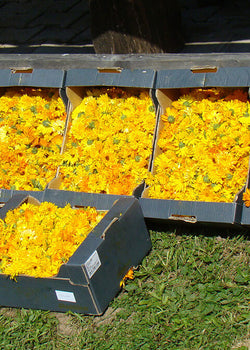4 ways to stop diarrhea in a dog
Diarrhea in a dog is a common occurrence and varies from dog to dog depending on how often the dog needs and how long the diarrhea itself lasts for a given dog.
It's true that indigestion isn't exactly the most pleasant subject, but if you're a dog owner, there's a good chance you've already cleaned up a smelly brown 'puddle' (dog diarrhoea).

Diarrhea is difficult to prevent completely, as there can be many causes for it. However, it is true that with some basic knowledge, you may be able to prevent disco or help your pet to end it as quickly and efficiently as possible.
And precisely because of this, at the end of this post, we have prepared 4 ways for you to help your pet stop diarrhea.
What exactly is diarrhea in a dog?
Diarrhea is the result of faster passage of contents through the intestines, along with reduced absorption of water, nutrients and electrolytes. As a result, this leads to a decrease in stool hardness and/or more frequent bowel movements.
Diarrhea in dogs is usually a sign of various medical conditions.
Diarrhea associated with minor ailments can often be quickly resolved with simple treatment at home. However, it is good to know that it can also be the result of serious diseases, such as allergies, bacterial or viral infections, intestinal diseases, organ dysfunction or other systemic diseases.
However, remember that even diarrhea caused by milder illnesses and longer duration can become serious if treatment is not started early enough to prevent severe dehydration and electrolyte imbalance.
Dog digestive system
There is a big difference between the way dogs and humans digest food.
Humans chew food because of the shape of their jaws, teeth and enzymes in their saliva, and enzymes help us break it down. Dogs, on the other hand, have a muzzle and jaw designed for tearing, crushing and swallowing. The enzymes in their saliva are mostly dedicated to killing bacteria, so they can eat a lot of things without any consequences.

Food travels quickly down the dog's esophagus and enters the stomach in pieces, where most of the digestion takes place. A dog's stomach acid is about three times stronger than a human's, so they can digest many foods that would put me in the hospital.
Acute and chronic diarrhea in dogs
Acute diarrhea
It appears suddenly in an otherwise healthy dog, lasts less than 14 days, and is often a result of:
- Change in diet: changing food without a transition period or feeding with leftovers 'from the table'
- Stress
- Viral, bacterial or parasitic infections.
Chronic diarrhea
It can be caused by food allergies, pancreatic disease, inflammatory bowel disease, irritable bowel syndrome, certain types of cancer, and diseases of other organs (e.g., liver failure or heart disease).
If your dog has chronic diarrhea, i.e. if it has been going on for more than a month, do not delay a visit to the vet.
12 most common causes of diarrhea in dogs
There are many potential causes that can cause diarrhea in a dog, but most cases can be attributed to one of these 12 triggers:
- Inadequate nutrition: too much food, feeding from garbage or eating spoiled food.
- Dietary change: It may take a few days for the dog's digestive system to adjust to the new protein in the food. It is recommended that you introduce your dog to new food slowly.
- Food intolerance
- Allergies
- Internal parasites: Most of these will cause disease in puppies or adults with weak immune systems - worms, tapeworms, roundworms.
- Poisonous substances or plants
- An indigestible foreign object, such as a toy or a sock
- Infections with common viruses
- Bacterial infections such as salmonella
- Diseases such as kidney and liver disease, intestinal inflammation and cancer
- Side effects of medicines (e.g. antibiotics)
- Stress or emotional upset
What your dog's poop can tell you about his health
The color of the stool can tell us what is happening in our dog's intestines. Chocolate brown is common, while colors like yellow, green or gray can mean trouble.
The color, shape, and hardness can help you and your vet identify where the problem is coming from along the dog's digestive tract.
What does the color of my dog's poop mean?
Normal poop can come in a wide variety of shades of brown. What if it's not brown?

Yellow stool
If you notice yellow stools in your dog, something is going on. The most common causes of yellow stool are: excessive growth of pathogenic bacteria (viruses, fungi, parasites), problems with the liver, bile or pancreas.
Green poop
Your dog's stool may turn green if he eats a lot of grass or if the food moves too quickly through the digestive system, which can be the result of gastrointestinal hypermobility.
Pay attention to what he snacks on in the park/walk. And if the reason is that he consumed a large amount of weed, don't worry. However, if you know that the dog has not eaten grass and green poop appears for several days, a visit to the vet is recommended.
Blue poop
Treat blue poop as an emergency. This could mean that your dog has eaten rat poison (which is usually blue in color) or a toy. Save the poop… then take it to the vet with the dog.
Black poop
Black or very dark brown stool often means that there is blood in the stool. This is usually an indication of upper gastrointestinal bleeding.
White pieces in the stool
White rice-like lumps in the stool usually mean your dog has tapeworms or worms.
Gray feces
Gray, greasy stools could mean your dog has a problem with his pancreas or bile.
A red dot or line in the stool
Red in the stool means there is blood in the stool. Check if your dog has any cuts on the butt opening, but it could also be bleeding in the lower part of the digestive tract.
Other abnormalities in dog feces
Other common abnormalities, in addition to color, can also help us determine the cause of the problem.
Shape
Grass, wood, or string in the stool can tell you that your dog ate something he couldn't digest.
Consistency
The firmness of dog excrement is rated on a scale of one to seven. From very hard and dry poop to completely liquid.

HELP: Diarrhea and vomiting in a dog
For dogs with diarrhea that have vomited only once or twice: Remove all food for 8-12 hours. To avoid dehydration, give your dog small amounts of water frequently throughout the day. If necessary, you can also offer diluted homemade chicken or beef broth in addition to water.
After your dog has not vomited for at least 8-12 hours, offer him a small amount of cooked chicken (without bones, skin or spices) and white rice.
Wait about two hours. If your dog has not vomited during this period, you can offer him another small meal of cooked chicken and rice.
Stick with this diet for 1-3 days - until the structure or hardness of the stool normalizes. Gradually increase the amount of food and increase the time between meals. In order to avoid new digestive disorders, it is good if you gradually return to your dog's normal diet.
4 WAYS TO STOP DIARRHEA IN A DOG
1. LENT
Many dogs have no desire to eat if they have digestive problems. If your dog doesn't like eating, don't force it.
If your dog still has the same desire for food during digestive problems, take a break of 12 to 24 hours. This will give his intestines time to rest and correct the problem. In the meantime, do not forget about frequent water supply in small quantities.
However, it is necessary to realize that fasting is not suitable for everyone. For example, puppies and older dogs need nutrients. Also, fasting may not be suitable for small dogs that do not have energy reserves.
2. DOMESTIC PHARMACY
Some proven methods from the 'home pharmacy' in the fight against diarrhea in dogs:
- Rice water: Boil high quality rice in plenty of water, remove the grains (strain) and offer the creamy white water that remains to your dog. For a more pleasant taste, you can add a little bit of soup.
- Boiled white rice
- Yogurt: contains beneficial bacteria, may help dogs that tolerate milk and dairy products.
- Probiotics: live bacteria that aid digestion (also found in yogurt)
- Boiled potatoes, without skin
- Cottage cheese
- Plain sources of protein such as eggs (boiled) or chicken (skinless)
- Herbs: such as fennel, which have soothing properties for the intestines
- Over-the-counter medications for humans can also be effective for canine diarrhea, but should be administered with caution and talk to your vet before use (eg charcoal).
Methods that work for one dog will not necessarily help another, so it takes a bit of experimentation to find the right formula to help our dog.
Once you find what works for your dog and the diarrhea goes away, you can slowly increase the meals and then start transitioning back to your dog's normal food.
3. SOFT FOOD
Think about the last time you had the stomach flu or food poisoning. What did you like to eat? Probably soft and light food.
The same goes for your dog. Feeding soup is a gentler way to help your dog transition back to a regular diet.
Soothing soup for dogs with diarrhea
- Place three to four chicken thighs in a container filled with water (approx. 6 glasses of water).
- Add chopped celery and carrot.
- Boil and let it boil for 1.5 to 2 hours.
- Remove the skin and bones and set aside the meat.
- Strain the soup.
- Allow to cool before serving.
- To start, offer only soup, but you can add a little meat and vegetables.
- Offer very small portions and wait 4 to 6 hours if there is racing or vomiting after the first meals.
4. LOTS OF LIQUIDS
Make sure your dog drinks plenty of water, as diarrhea can quickly cause your dog to become dehydrated. If your dog is not interested in drinking water, you can encourage him by adding some chicken or beef broth to his water, or by making him rice water.

How to prevent diarrhea in a dog
Some ways to prevent diarrhea in dogs:
- Do not suddenly change your dog's diet.
- The bone should not be used instead of a toy (solid rubber chew toys are a better choice).
- Do not let your dog play with small objects that could be swallowed.
- Do not feed your dog with table scraps
- Don't let your dog 'scavenge' (eating waste)
- Veterinary medicine: tablets against internal parasites
When is the right time to visit the vet?
The right time to visit the vet depends a lot on what is normal for your dog. Unfortunately, some dogs are more prone to indigestion than others, so you need to be very aware of what is completely normal for your dog and what is not.

Recommendations for when to go to the vet are, if they occur:
- Other physical symptoms, such as fever, vomiting, dry, sticky, or pale gums, or weakness;
- Diarrhea that does not stop despite home remedies that have already worked for your dog
- Dehydration: Try lifting the skin off your dog's back in the tent. If the skin goes back immediately, the dog is well hydrated, if it takes a few seconds or worse, it remains raised, it means that the dog is dehydrated and therefore do not delay a visit to the vet.
- Prolonged severe diarrhea
- Use of medication (for example, if your dog is on antibiotics)
- Pre-existing conditions such as diabetes, cancer or any health issue
- And of course, when things just don't feel right. You know your dog, so you can quickly notice when something is wrong. Respect your instincts and if you feel you need a veterinary consultation, pick up the phone and ask.

